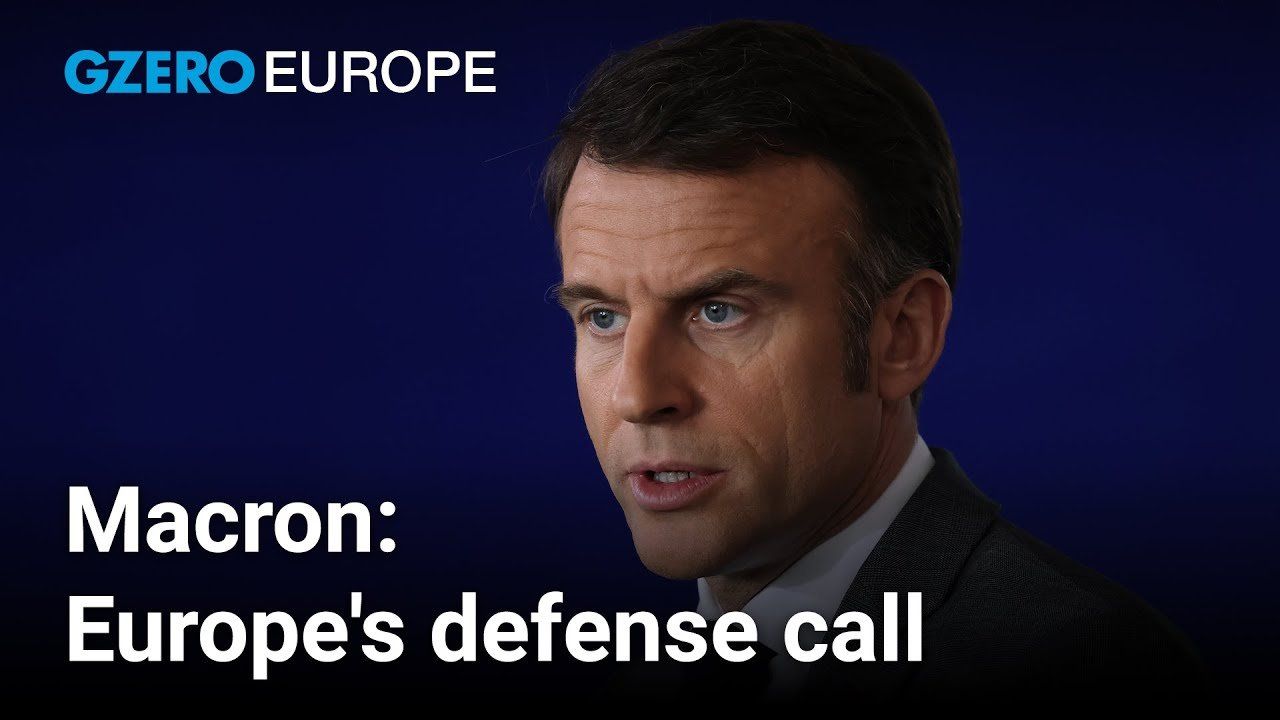GZERO Europe
Europe needs to strengthen its defenses, says President Macron

TITLE PLACEHOLDER | Europe In :60

Carl Bildt, former prime minister of Sweden, shares his perspective on European politics from Etterbeek, Brussels.
Does President Macron in France, thinks that Europe can't rely on the United States for its defense no longer?
That's not really the gist of what he’s saying. What he's saying, and I think he's entirely right, is that Europe must do more on its own for its defense. The United States remains a partner of immense value. No question about that. But he points out that the United States is a country with global responsibilities and pressures for an increased engagement elsewhere as well. So the call for Europe to do more, to coordinate, to integrate, to strengthen its own defenses from President Macron. I think that reflects a sentiment that you find all over Europe these days.
Does the resurgence of the radical right in any way impair the celebration in Portugal that is 50 years since the coup, the revolution that overturned the dictatorship?
I don't think it does. That was a joyous celebration across Lisbon and across Portugal on that day, celebrating that is 50 years, the return of democracy or the coming of democracy, to be precise. The only thing that was perhaps, discordant note was, some difficult in handling the legacy of the old colonial wars. Portugal did try to cling on the colonial empire in Africa for a very long time, and that was one of the reasons, by the way, for the revolution 50 years ago.
1,170: The number of high-rise buildings in Kyiv that were left without heating following a barrage of Russian attacks last night on Ukraine’s capital and its energy facilities, per Kyiv Mayor Vitali Klitschko.
U.S. President Donald Trump and Japanese Prime Minister Sanae Takaichi hold up signed documents regarding securing the supply of critical minerals and rare earths, at a bilateral meeting at Akasaka Palace in Tokyo, Japan, October 28, 2025.
Representatives from the European Union, United Kingdom, Japan, and others will meet in Washington this week to discuss a strategic alliance on critical minerals.
80,000: The number of people estimated to be in the streets of Czechia on Sunday to show their support for President Petr Pavel after he blocked the nomination of an environmental minister who performed the Nazi salute and posted Nazi memorabilia.
The US has started handing $1,000 to the bank accounts of newborn babies. But can policies like this one help boost sagging birthrates in advanced democracies?